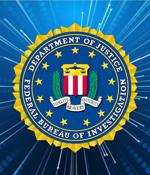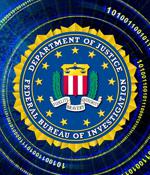Security News

"As a result of our office's tireless efforts, alongside FBI Miami, US Secret Service, and our foreign law enforcement partners, we have provided BlackCat's victims, in the Southern District of Florida and around the world, the opportunity to get back on their feet and to fortify their digital defenses. We will continue to focus on holding the people behind the BlackCat ransomware group accountable for their crimes." An AlphV admin said the law enforcement agencies only had access to a "Stupid old key" for the old blog site which was deleted by the group a long time ago and has since not been used.

The Department of Justice announced today that the FBI successfully breached the ALPHV ransomware operation's servers to monitor their activities and obtain decryption keys. With this access, the FBI silently monitored the ransomware operation for months, siphoning decryption keys and sharing them with over 500 victims so that they did not have to pay a ransom for a decryptor.

Multiple sources are confirming the resurgence of Qakbot malware mere months after the FBI and other law enforcement agencies shuttered the Windows botnet. Microsoft Threat Intelligence reckons a new Qakbot phishing campaign is active as of December 11 but attack attempts are currently low in volume.

The Federal Bureau of Investigation says the Play ransomware gang has breached roughly 300 organizations worldwide between June 2022 and October 2023, some of them critical infrastructure entities. "Since June 2022, the Play ransomware group has impacted a wide range of businesses and critical infrastructure in North America, South America, and Europe," the three government agencies cautioned today.

Absence of arrests doesn't mean nothing's happening, cyber-cops insist The FBI is applying "significant" resources to find members of the infamous Scattered Spider cyber-crime crew, which...

Scattered Spider attacks were documented since last summer when researchers at cybersecurity company Group-IB publishing a report about a spree of attacks aiming to steal Okta identity credentials and 2FA codes, which had started March the same year. The FBI and CISA alert highlights Scattered Spider's powerful initial access tactics that involve targeting a company's employees by posing as IT or help-desk staff and tricking them into providing credentials or even direct network access.

The threat actors behind the Rhysida ransomware engage in opportunistic attacks targeting organizations spanning various industry sectors. The advisory comes courtesy of the U.S. Cybersecurity and...

The FBI and CISA warned today of Rhysida ransomware gang's opportunistic attacks targeting organizations across multiple industry sectors. "Threat actors leveraging Rhysida ransomware are known to impact 'targets of opportunity,' including victims in the education, healthcare, manufacturing, information technology, and government sectors," the two agencies noted.

FBI director Christopher Wray made yet another impassioned plea to US lawmakers to kill a proposed warrant requirement for so-called "US person queries" of data collected via the Feds' favorite snooping tool, FISA Section 702. As the deadline draws near, and reform looms, the FBI and other law enforcement agencies are pulling out all the stops to convince lawmakers to greenlight Section 702 without making any changes to the spying tool - and especially without any warrant requirements.

The FBI and CISA revealed in a joint advisory that the Royal ransomware gang has breached the networks of at least 350 organizations worldwide since September 2022. [...]